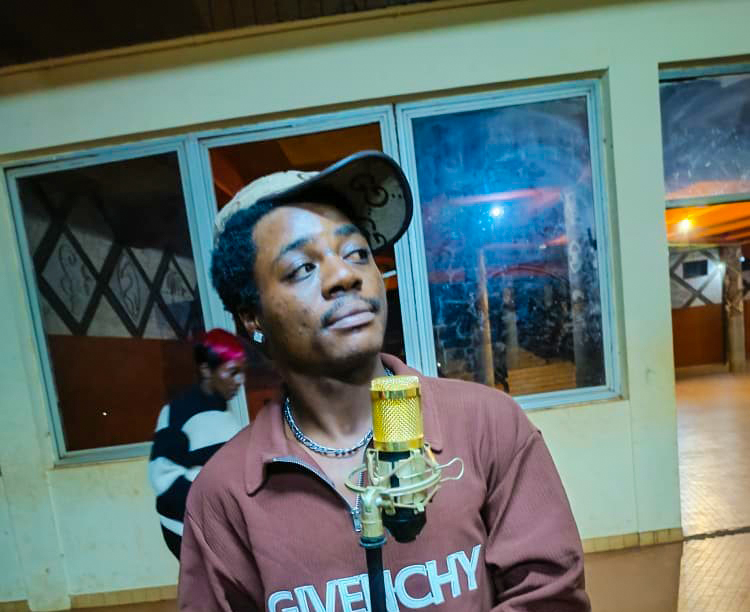Veteran Cameroonian film actor and cultural advocate Bernard Wirsiy has indicated that the future of the nation’s burgeoning film industry depends on equipping the next generation with both skills and real-world experience. The founder of the Rainbow Interactive Association made the comments during an exclusive interview with News-lens, outlining a comprehensive strategy for nurturing new talent. Moving beyond basic training workshops and production opportunities, Wirsiy stressed that a core focus is dedicated mentorship, arguing that the guidance from seasoned professionals is “invaluable” for young creatives navigating the complexities of the cinematic landscape.

Read the excepts.
News-lens: You are a veteran in the film industry in Cameroon. How has your journey been in this field?
Wirsy Bernard: Thank you for having me. If we were to make a film about my journey, it would be titled From Everyman to Everybody’s Man! My story began in 1995, when I first stepped onto the stage as an actor in Obotunde Ijemire’s Everyman. We toured secondary schools, introducing students to the magic of theatre. This experience served as my baptism of fire, allowing me to immerse myself in the world of performance and storytelling.
In 1999, I ventured into film for the first time with Tradition in Want of Sacrifices, where I played the role of a nurse. Imagine the scene: me, in a nurse’s uniform, surrounded by a cast and crew, almost administering real injections on set! This was a pivotal moment for me, sparking a deeper commitment to the craft of acting.
I enrolled in the University of Yaoundé I, where I studied theatre and cinema, completing my degree in 2009. This academic foundation was crucial in honing my skills and understanding the intricacies of both performance and production. Later on, I was fortunate to receive a scholarship to study in South Africa, where I earned my Master’s in Participatory Theatre. This experience broadened my horizons, exposing me to diverse styles and approaches in the performing arts.
Since then, my life has revolved around teaching, acting, directing, and producing. I have dedicated myself to living and breathing theatre and cinema. The journey has not been without its challenges; however, my passion for the craft acts as the fuel that keeps me moving forward. Every setback I’ve encountered has only strengthened my resolve to contribute positively to the industry.
How are you specifically helping young actors in Cameroon get their start?
This is a topic that resonates deeply with me. Since 2014, through my Rainbow Interactive Association, we have trained over 250 young Cameroonians in both theatre and film. These numbers represent more than just statistics; they embody the potential of future stars, storytellers, and cultural ambassadors.
Our approach goes beyond traditional classroom settings. We provide hands-on, practical experiences that prepare the youth for the realities of the industry. Every Tuesday, we produce short didactic and entertaining sketches that air on CRTV. This platform allows our trainees to not only dream about being on television but to actually see themselves in that role. It’s a powerful motivator. I often remind them, “You don’t need to wait to be in Hollywood to be somebody. Start with Yaoundéwood.”
In addition to workshops and productions, we also focus on mentorship. I believe that guidance from experienced professionals is invaluable. By sharing my own experiences, successes, and failures, I aim to inspire them to navigate their paths with confidence. The creative community in Cameroon is vibrant, and I see it as my responsibility to nurture the next generation of talent.
Why is it important for you to tell Cameroonian stories in your films?
Telling Cameroonian stories is of paramount importance. If we don’t take the initiative to narrate our own tales, who will? There’s a saying that when a lizard falls from a tall tree and survives, it nods its head in self-praise. In the same vein, it is essential for Cameroonian filmmakers to share our stories, as Hollywood is unlikely to do it for us.
Our stories encapsulate the essence of our identity—our realities, proverbs, humor, struggles, and triumphs are uniquely Cameroonian. Through film, we have the opportunity to showcase that Cameroon is not merely a football nation; we are a tapestry of rich culture, complex politics, diverse people, and boundless creativity.
By sharing our narratives, we challenge stereotypes and misconceptions that may exist about our country. We open a dialogue with the world, inviting others to understand our perspectives and experiences. I firmly believe that film is a powerful medium for cultural exchange and understanding.
How do you combine theatre art with your work in film, given that they are two distinct disciplines?
That’s a nuanced question. Balancing theatre and film is akin to being married to two wives—you must maintain harmony, or you’ll find yourself in a difficult situation. Theatre and film are related but distinct disciplines; they don’t share the same plate.
Theatre is live, immediate, and unforgiving. If you forget your line, even your ancestors will hear it! The audience experiences the performance in real-time, which creates a unique connection between the actors and the spectators. Film, conversely, provides the luxury of editing, retakes, and polishing. This allows for a different kind of storytelling, where the final product can be meticulously crafted.
To combine both realms, I respect their differences and leverage the strengths of one to enrich the other. The discipline and immediacy of theatre enhance my presence in film, while the technical precision of film sharpens my theatre practice. This cross-pollination has made me a more versatile artist, allowing me to draw from my experiences in both fields to create compelling narratives.
What is the biggest change you’ve seen in the industry?
The most significant change I’ve observed is the rapid advancement of technology! When I first started, we used cameras that resembled relics from the Second World War. Now, many filmmakers are capturing stunning visuals with just their smartphones. This democratization of technology has opened doors for aspiring filmmakers who may not have had access to traditional resources.
Another notable shift is the boldness of young creators. Today’s filmmakers are not waiting for government backing or foreign aid before embarking on their projects. They are taking the initiative, creating content that reflects their experiences and perspectives. This newfound independence is invigorating, fostering an environment where creativity can flourish.
Of course, challenges remain—funding, distribution, and recognition are still significant hurdles to overcome. However, the creative energy in Cameroon is palpable. The youth are eager to tell their stories, and that passion is what will drive the industry forward.
What advice do you have for young filmmakers and what is your biggest hope for the future of the industry in Cameroon?
My advice to young filmmakers and actors is straightforward: Don’t be lazy, don’t be cheap, and don’t be fake. This craft demands discipline, humility, and a commitment to lifelong learning. The entertainment industry can be competitive, but those who are dedicated and passionate will find their place.
My biggest hope is for Cameroon to develop a robust film industry where our stories are well-funded, properly distributed, and celebrated both at home and abroad. I dream of a future where our films are recognized at international festivals and where our filmmakers receive the support they deserve.
Additionally, I hope for the establishment of more training institutions that provide structured learning opportunities. Aspiring talents should not learn by chance but by design. By investing in education and training, we can cultivate a generation of filmmakers who will carry our stories forward, ensuring that the rich tapestry of Cameroonian culture continues to thrive.
Interviewed by Etienne Mainimo Mengnjo


